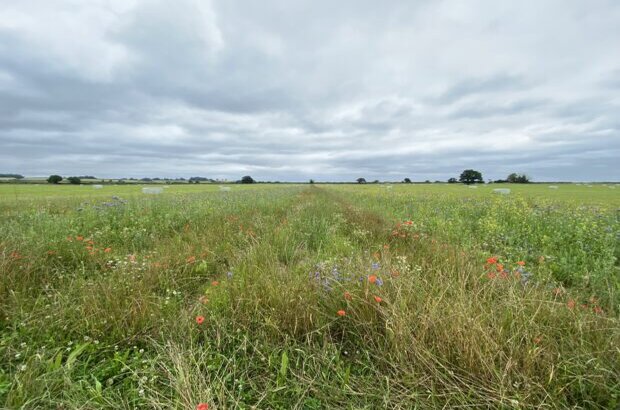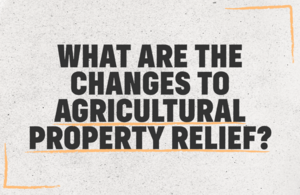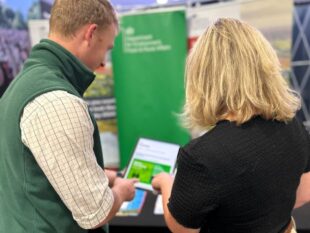
At the start of this year I wrote about what we had in store for the year. This post is about how we’re getting on and what’s coming next.
Designing and building environmental, climate and animal health and welfare schemes
We’ve been working hard to improve our existing schemes and services, including:
- simplifying the 2021 Basic Payment Scheme, including removing the greening rules and simplifying the rules, reducing the amount of guidance by half
- launching a new, simplified and improved round of Countryside Stewardship, including making the compliance regime fairer and more proportionate and providing a new, expanded capital grants offer, which has had a high level of interest from farmers and land managers
We’ve continued to test and learn to inform the design of our new schemes. We’ve:
- launched Farming in Protected Landscapes - a programme of grant funding for farmers delivered through the national parks and areas of outstanding natural beauty
- launched our Sustainable Farming Incentive pilot scheme, with around 2,200 farmers expressing an interest in taking part
- continued our programme of tests and trials, where more than 3,000 people are leading projects to test ideas for our future schemes – we recently published a summary of what we’re learning
- launched another round of tests and trials, focusing in particular on Landscape Recovery - we received over 70 applications, which we are currently reviewing
- continued to prepare for our first Landscape Recovery projects, which are due to be in place next year, by starting our market engagement work
- developing the Local Nature Recovery scheme, learning lessons from our tests and trials and previous schemes – this scheme pays for the right things in the right place, beyond the more universal standards of the Sustainable Farming Incentive
- continued to develop the Animal Health and Welfare Pathway in partnership with farmers and experts, including surveying 300 farms to understand where animal welfare can be improved on farm
- continued to develop the Tree Health pilot in advance of launch later this summer
- blogged regularly to share our progress and learning
- been out and about at the agricultural shows, taking part in Q&A sessions with farmers, and engaging through our regular engagement groups as part of our ongoing dialogue with farmers and experts
In the second half of the year, we’ll be:
- continuing our programme of co-design, tests, trials and piloting – if you’re interested to get involved in our co-design work, please email ffcpcodesign@defra.gov.uk.
- signing the first agreements with participants in the Sustainable Farming Incentive pilot scheme, making the first payments, and learning to inform the development of the main Sustainable Farming Incentive scheme ahead of its launch next year
- continuing our programme of user research and design for the Sustainable Farming Incentive
- inviting people to apply for our first Landscape Recovery projects, supporting large-scale, long-term habitat restoration and land use change
- continuing to expand our piloting and design work for the local nature recovery scheme
- increasing and improving the way we communicate about what we’re learning and how we’re applying that learning in scheme design, so that everyone who is taking part in co-design can see how their time and effort is making a difference, and everyone can see how we’re balancing the range of views and evidence and coming to decisions about scheme design and delivery
Farming prosperity
Alongside our work to invest in environment, climate and welfare outcomes, we’re also looking to support prosperity in the agriculture sector.
So far this year, we’ve:
- published a consultation about our proposed lump sum exit scheme for farmers and approach to introducing delinked payments in 2024
- funded 19 organisations to provide resilience schemes - free business planning advice for up to 10,000 farmers, available from this month
- continued to support investment in equipment and technology
- agreed a partnership with UKRI for delivering new innovation, research and development competitions due to open for applicants from autumn 2021 with projects starting in 2022
- launched the Farming Innovation Pathways competition for research and development within UK Research and Innovation’s Transforming Food Production programme to develop farm-focused innovations. We increased funding for the programme to £14.5 million due to high demand and quality research projects across farming sectors; projects will start from October 2021
- continued to work with the industry-led group on the establishment of the Institute of Agriculture and Horticulture
- started work to co-design our new entrant scheme
In the remainder of the year, we’ll:
- launch the Farming Investment Fund, by October, to help farmers invest in equipment and technology
- share our thinking on what a new entrant scheme could look like based on our co-design work so far
- review responses to our consultation on delinking and a lump sum exit scheme, and make decisions about what the scheme will look like and how it will operate
- open the first innovation, research and development competitions
- continue to support the development of the Institute for Agriculture and Horticulture
Regulation and enforcement
We’ve:
- improved the way cross-compliance works, and made inspections and penalties fairer and more proportionate
- carried out co-design work with farmers, land-managers and others that interact with farming policy including inspectors and experts to collaboratively design our future regulatory system
- identified two focus areas to explore more with farmers and experts (nutrient management and livestock traceability) - these areas were recognised as problematic, either because regulation in these areas is seen as unfair, with disproportionate enforcement or ineffective in addressing environmental harm and its causes, including as a result of current low levels of compliance
- allocated necessary budget and set the Environment Agency a target of at least 1,500 advice-led inspections to be undertaken in financial year 2021/22, to support more farmers to meet legal requirements and improve water quality
Alongside designing the government’s future regulatory approach, we are also making improvements, where possible, to our current regulatory system.
Sharing details so people can plan
We know it’s really important to farmers to have details about what our environmental land management and animal health and welfare schemes will pay for. This year, we’re working hard to nail down the important details and share them so that everyone can plan.
In June, we published information about what the Sustainable Farming Incentive will pay for in 2022.
We’ve set up a page on this blog that lists all the changes that are coming, so that you can find them in one place. We’ve also been out and about at the agricultural shows, sharing information and answering people’s questions, and taking part in lots of online Q&As with membership organisations and local groups.
Over the rest of the year, we’ll be publishing:
- finalised standards and payment rates for the Sustainable Farming Incentive in 2022
- information about Local Nature Recovery piloting and design work, and how farmers and land managers can get involved
- information about the bidding process for the first Landscape Recovery projects
- details of our prosperity schemes including the Farming Investment Fund and innovation, research and development projects and funding
- our thinking so far about our planned new entrant scheme
- details of our lump sum exit scheme and approach to delinking
You can find information about the full range of schemes in Future farming: what’s changing.




 The
The 
1 comment
Comment by Dr (professor) Peter J. Leggo posted on
My colleagues and I have developed a method of useing food waste as a plant fertilizer. A machine was built for this purpose which digeste the food waste and stored in liquid form that can be sprayed over farm land, Our earlier work, eighteen papers in the peer reviewed scientific literature demonstrated the success of using crushed natural zeolitic rock (tuff) together with an organic component as a biological fertilizer .
It has now become clear that by adjusting the food waste digestate and adding zeolitic tuff a bio-fertilizer can be produced that will have an identical effect .